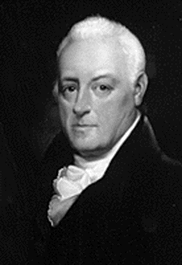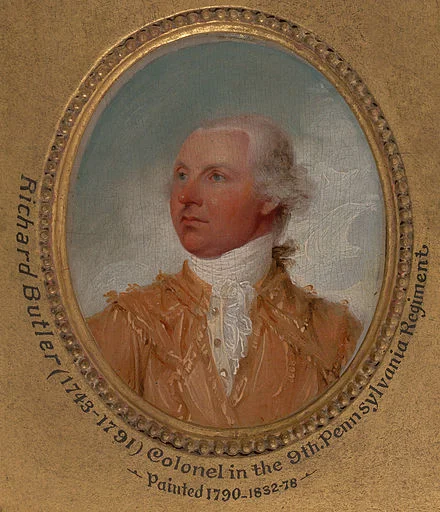Richard Peters - From Secretary To The Board (Of War)
Richard Peters served in the American Revolution on the Board of War.
Peters also received election to the Continental Congress and helped reunited Americans with the Church of England.
Richard Peters
By the time the American Revolution began, Richard Peters was already Philadelphia’s Admiralty Register. In this position, he was responsible for keeping track of all the ships going into and coming out of the city’s port.
It was here that Peters received a first-hand education regarding how British taxation was affecting the merchants.
He was quickly radicalized into a rebel.
Board of War
After creating the Continental Army, and appointing George Washington as Commander-in-Chief, the Continental Congress created the Board of War.
The Board of War was responsible for the administrative duties associated with running a war.
Richard Peters was hired as Secretary for the Board, making him one of the few people in the Continental Congress who was not elected.
Two years later, the Board of War was reorganized.
Instead of being run as a committee consisting of delegates to the Continental Congress, the Board would now have five private citizens on it. Peters was chosen as one of these delegates.
Richard’s experience as Admiralty Register served him well in this position and he sat there for the next three years.
The Church
As the war wore down, Peters was elected as a delegate to the Congress. He spent two years there, assisting with negotiations for peace and the dissolution of the Continental Army.
Richard then went to England to mend spiritual fences.
Although several communities in the United States had first been established for religious freedoms (Catholics, Quakers, Puritans, etc), most citizens were members of the Church of England.
This created a sticky situation, since the new government had no interest in creating a Church of the United States (though many individual States did).
Peters’ mission was successful, getting certain recognition’s for American denominations of the Church.
Federal Judge
After returning home, Peters was elected to Pennsylvania’s House of Representatives where he twice served as Speaker of the House.
In early 1792, President Washington nominated Peters to be a Federal Judge for the District of Pennsylvania. He was approved by the Senate the following day.
Perhaps Peters’ greatest contribution as a judge was during a cases which went above him to the Supreme Court. He was overruled on several occasions, helping to cement judicial authority with the Federal Government.
If you found this article interesting, you might like to read about Charles Thomson. Thomson was another hired employee of the Continental Congress. Spending the entire Founding Period in the Congress’ service, he is one of the most underrated Founders.
Since Richard Peters doesn’t have a biography, today I’m recommending ‘The Glorious Cause’ which, as a part of the Oxford History of the United States, is one of the most authoritative (yet readable) books about the Revolutionary War. Get it at your library or support this site by purchasing it through the affiliate link below.






